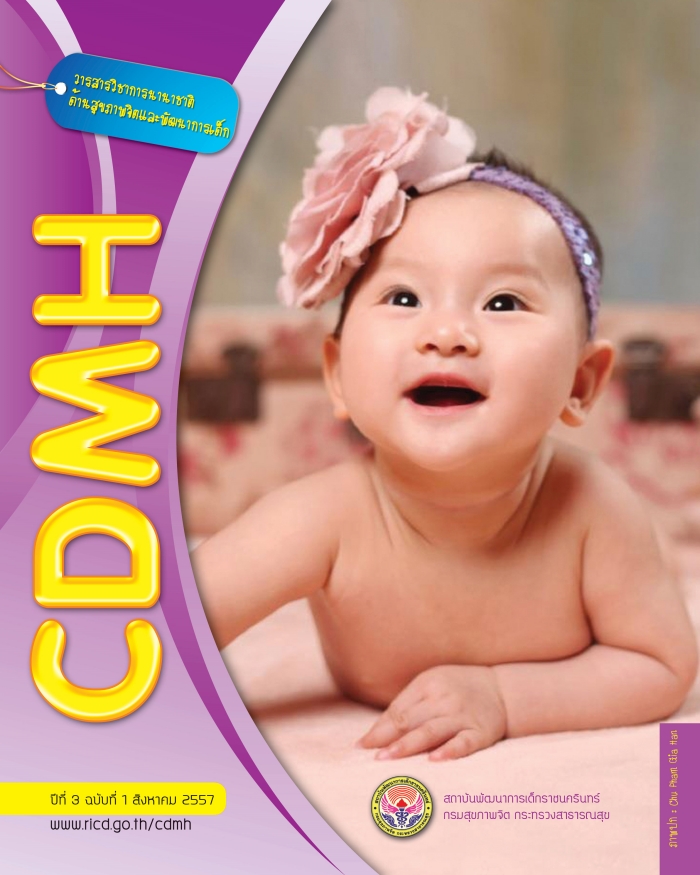IQ changed in 2 children with ASD
Main Article Content
Abstract
Autistic spectrum disorder (ASD) เป็นความผิดปกติทางพัฒนาการที่มีอาการสำคัญ คือ ผู้ป่วยจะมีปัญหาพัฒนาการทางสังคม การสื่อสารและพฤติกรรมซ้ำซาก นอกจากนี้ยังมีอาการทางพฤติกรรมอีกหลายอย่าง ที่เป็นประกอบในการวินิจฉัยผู้ป่วยแต่ละรายจะมีรูปแบบของอาการ ความรุนแรง และการตอบสนองต่อการรักษาต่างกัน
ซึ่งเป็นลักษณะสำคัญอย่างหนึ่งของผู้ป่วยกลุ่มนี้ที่จะมีความแตกต่างรายบุคคลอย่างมาก ระดับสติปัญญาของผู้ป่วยออทิสติกเดิมเป็นหนึ่งในอาการแสดงที่พบกันว่า มีค่าไม่แตกต่างจากคนปกติ โดยมีทั้งที่มีระดับสติปัญญาปกติและต่ำกว่า
หรือสูงกว่าก็ได้ ระดับสติปัญญาของเด็กซึ่งวัดผลเป็นค่า IQ นั้น โดยทั่วไปจะพบว่าค่อนข้างคงที่ แต่สำาหรับผู้ป่วย
ASD ในระยะหลังพบว่า ระดับสติปัญญาของผู้ป่วยกลุ่มนี้นั้น มีการเปลี่ยนแปลงได้ ในผู้ป่วยแต่ละคน ซึ่งในประเด็นนี ้ ยังไม่มีข้อสรุป เพราะมีการศึกษาค่อนข้างน้อย และผลที่ได้ยังไม่ไปในทิศทางเดียวกัน กล่าวคือ พบทั้งกลุ่มผู้ป่วยที่มีระดับ IQ เพิ่มขึ้น เท่าเดิม หรือลดลง รายงานนี้เป็นการนำเสนอกรณีศึกษา ผู้ป่วย 2 ราย ที่มีการเปลี่ยนแปลงค่า IQ ทั้งสองแบบ คือ เพิ่มขึ้นและลดลง เพื่อเป็นหลักฐานว่า การเปลี่ยนแปลงระดับ IQ สามารถเกิดได้ทั้งสองแบบ ซึ่งปรากฏการณ์นี้ควรได้รับการศึกษาในรายละเอียดต่อไป
Article Details
The authors retain copyright and permit the journal the copyright of first publication
Articles, once having passed the review process and accepted for publication in the CDMH Journal, are copyrighted under the CDMH Journal, Department of Mental Health, Ministry of Public Health. Please be aware distribution of CDMH Journal content for commercial purposes without permission is expressly prohibited. However, distribution with intent to educate, advocate, or spread awareness within the general public and research communities is permitted and encouraged with the understanding that the CDMH Journal Editorial Board do not hold jurisdiction or liability for any accompanying comments, text, or information from third parties, either in favor for or against the original article’s assertions, conclusions, methodology, or content.


